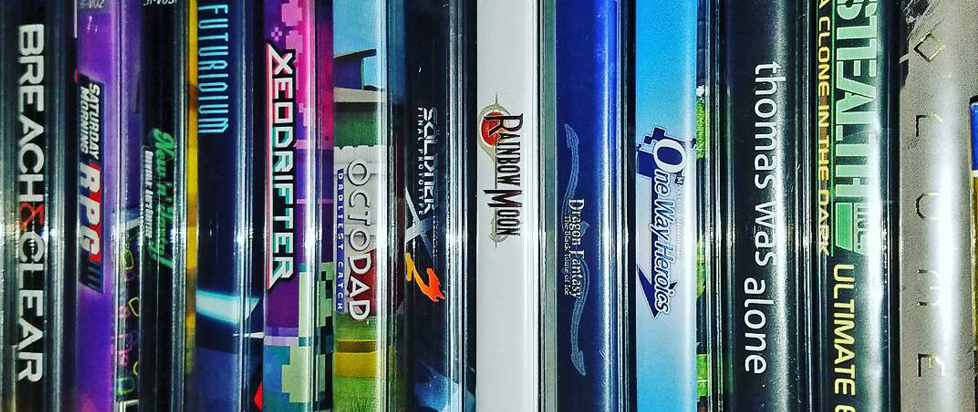
Killing the Vampire
This is a feature excerpt from Unwinnable Monthly #168. If you like what you see, grab the magazine for less than ten dollars, or subscribe and get all future magazines for half price.
———

Across their centuries of existence, tales about vampires have taken on almost every form imaginable. The gothic stylings of Dracula, with its inky bed chambers and midnight incursions, cast a long shadow, but this is just one framing among many in modern pop culture. We’ve seen contemplations on the ennui of living forever (Only Lovers Left Live), high school drama (Twilight, The Vampire Diaries), metaphors for gentrification (Vampires in the Bronx), explorations of sexuality and sexual desire (like, all of them) and racial allegories where the vampires are the oppressors, oppressed or a cipher for the author’s xenophobic views. However, as wealth disparity has become increasingly unavoidable in our late-capitalist hellworld, one of these fanged menaces’ most ubiquitous representations has come back into vogue, that is, as a stand-in for an exploitative ruling class.
This depiction is a common one, and throughout the first volume of Das Kapital, Marx used vampires as a metaphor for how the capitalist class feasts on the labor of workers. Later, the iconography of Count Dracula would strengthen the cultural connection between these creatures and exploitative elites by portraying a bloodthirsty noble who sustains himself off the lives of the peasantry. Horror has long been used to work through latent fears, and in this incarnation, the vampire represents animosity toward those who abuse their economic and political power.
Although framing our anxieties through fiction can be cathartic, particularly when the hunted protagonist drives a stake through the heart of their assailant, this style of narrative tends to be intimate in a way that makes these victories personal instead of structural. As the sun rises, the singular monster may turn to ash, but the specter of their terror remains. That said, there is a story that takes a different tack, one that never explicitly mentions vampires but nonetheless uses battles against life-force-sucking foes to convey systemic change: Xenoblade Chronicles 3.
The latest entry in Monolith Soft’s line of sprawling sci-fi RPGs takes us to Aionios, a land trapped in endless war. Its two sides, Keves and Agnus, are made up of child soldiers who must harvest their enemies’ life force to keep themselves and their comrades alive. The organization Moebius and its ageless Consuls pull the strings of this conflict, ensuring neither side wins so the world remains trapped in stasis.

As we learn more about the truths of this place and how it operates, it becomes increasingly clear that the Consuls are this narrative’s vampires. On a surface level, they certainly look the part: they don’t age, their crimson armor resembles Dracula’s costume from the beginning of Coppola’s ’92 flick, they have pale, unchanging visages, many of them speak in condescendingly loquacious soliloquies and they can transform from an initially human appearance into hulking monsters with pointed fangs. Their central den is a dilapidated amphitheater that floats improbably in the middle of a giant mechanical orb, the contrast between this futuristic setting and their lair drawing attention to their gothic roots.
Beyond these superficial qualities, Moebius is comprised of vampires because they subsist off the lives and labor of those under their thrall. The Consuls live forever by consuming energy emitted by Kevesi and Agnian soldiers who die during this manufactured conflict, creating an endless rule over an unchanging land (appropriately, the Moebius symbol is an infinity sign). This war grants them sustenance and a means for maintaining the status quo, guaranteeing that those with common goals are too busy killing one another to realize who their true foe is.
To further undermine solidarity, Moebius has divided the Kevesi and Agnian armies into regiments called colonies, which are indirectly pitted against one another. The members of each are tied to a Flame Clock, a measurement of how much life they’ve extracted from their slain enemies. If this resource runs out, everyone in that colony will die, making it necessary to continue seeking out battles. This system further incentivizes them to kill as these squads are graded based on their performance, and higher achievers are given improved rations, supplies and the promise that if they reach the top rank, they will be excused from more fighting. The reality is that when they achieve the pinnacle, the Consuls will wipe them out for being a potential threat and because these ghouls describe the life force of “ripened” soldiers as particularly delectable.
It all works as a not-so-subtle metaphor for how our economic structures threaten us with death and destitution, turning us against each other over the empty promise that if we buy into the system, we could be the next one on top. Agnian and Kevesi toil accumulates in the Flame Clocks like capital as the Consuls feast on the dead labor of their underlings. Through all these efforts, Moebius has created a space that is stuck, or the “endless now,” as their leader, Consul Z, puts it.
Adding to their vampiric qualities, most of the organization’s members were once human. Some defected to satiate their sadistic desires, others for control and many more to avoid the inevitability of death. A few even struggled against their overlords until they were beaten down by the sheer scale of their domination. Like many who control the levers of power in the real world, they seek to maintain the status quo and fend off change to perpetuate their vice grip, occasionally recruiting outsiders to their ranks to further demoralize their comrades. However, while Xenoblade Chronicles 3 begins in an undeniably grim place, this is fundamentally a story about revolution and the possibility for change.
———
Elijah Gonzalez is an assistant editor at Paste Magazine and a freelancer who has contributed to Fanbyte, Game Informer, Uppercut Crit, and more. He loves writing about stories in every form and dreams of the day he’ll finally finish the Yakuza series. You can follow him on Twitter @eli_gonzalez11
You’ve been reading an excerpt from Unwinnable Monthly Issue 168.
To read the article in its entirety, please purchase the issue from the shop or sign up for a subscription to Unwinnable Monthly!




